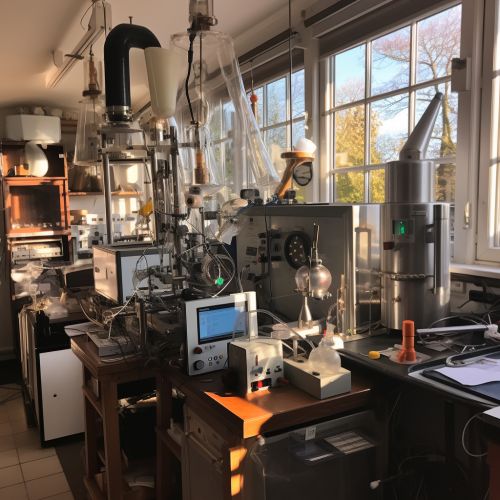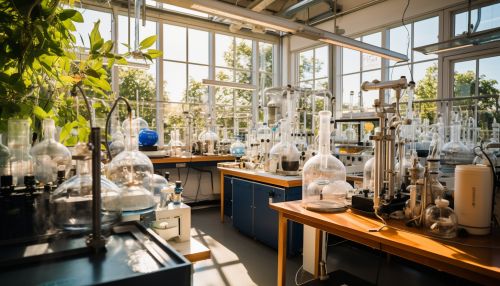Organic Geochemistry
Introduction
Organic geochemistry is the study of the impacts and processes that organisms have had on Earth. It is a sub-discipline of geochemistry which is specifically related to the study of the chemical processes and compounds that are derived from living or once-living material. This field of study contributes significantly to our understanding of climate change, oil and gas exploration, and environmental remediation.
History
The field of organic geochemistry was established in the early 20th century with the study of biomarkers, chemical fossils and the isotopic composition of organic matter. The first studies were on materials from terrestrial environments, but the focus quickly expanded to include marine sediments and the role of the ocean in global carbon cycling.
Principles
Organic geochemistry involves the study of the chemical elements in biological and geological systems. It focuses on the distribution and cycling of elements in the biosphere, atmosphere, hydrosphere, and lithosphere. It also involves the study of chemical processes and transformations in the Earth's crust and the ocean, the atmosphere, and the biosphere.


Applications
Organic geochemistry has several applications in different fields:
Climate Change
Organic geochemistry plays a crucial role in understanding past climate change. It provides evidence of past temperature, precipitation, and vegetation changes, and the response of different components of the Earth system to these changes.
Oil and Gas Exploration
In oil and gas exploration, organic geochemistry is used to identify the presence of hydrocarbons in rock samples. It helps in the identification of source rocks, maturity, and alteration of petroleum.
Environmental Remediation
Organic geochemistry is also applied in environmental remediation. It is used to understand the fate and transport of organic contaminants in the environment.
Techniques
Organic geochemists use a variety of techniques to investigate the composition of organic matter, including:
Gas Chromatography
Gas chromatography is a common technique used to separate and analyze compounds that can be vaporized without decomposition.
Mass Spectrometry
Mass spectrometry is used to identify and quantify compounds in a sample. It is often combined with gas chromatography to provide detailed information about the molecular composition of a sample.
Isotope Ratio Mass Spectrometry
Isotope ratio mass spectrometry is used to measure the ratio of stable isotopes in organic compounds, which can provide information about the source and age of the compounds.
Future Directions
The future of organic geochemistry is likely to be driven by advances in analytical techniques and the integration of different disciplines. The development of new methods for the analysis of complex organic mixtures will provide new insights into the composition of organic matter and the processes that produce and alter it. The integration of organic geochemistry with other disciplines such as microbiology and climatology will provide a more comprehensive understanding of the Earth system.
